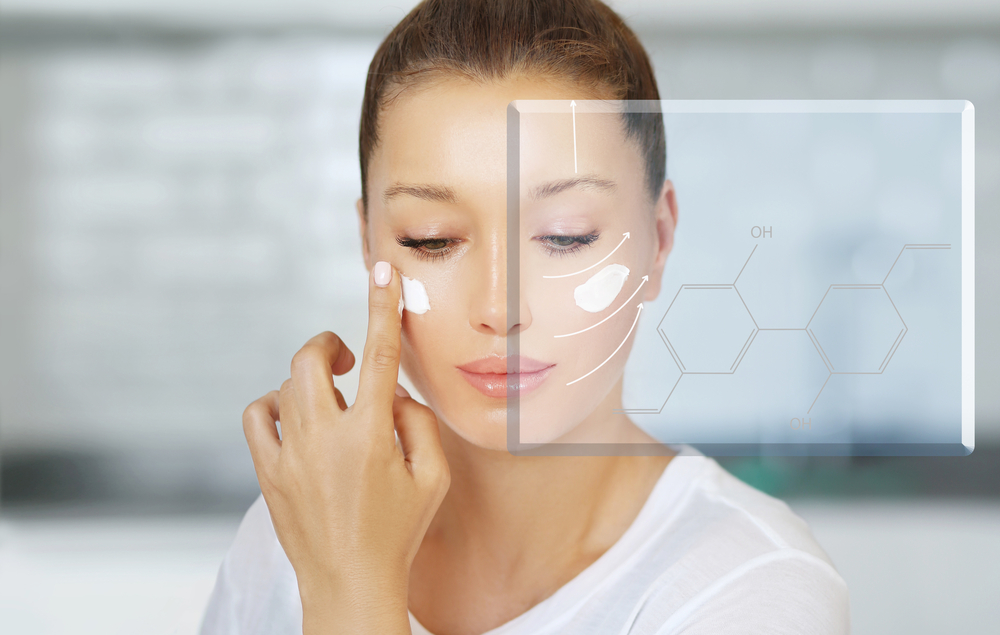Microneedling, also known as collagen induction therapy, is a minimally invasive cosmetic procedure that involves using fine needles to create tiny punctures in the skin. These micro-injuries stimulate the body’s natural wound healing processes, which include the production of collagen and elastin, essential components for youthful, healthy skin.
Here’s an overview of microneedling:
Procedure
- Preparation: The skin is thoroughly cleansed, and a topical numbing cream is usually applied to minimize discomfort.
- Microneedling Device: A device with fine needles, such as a derma roller or a microneedling pen, is used to create controlled micro-injuries on the skin’s surface.
- Technique: The device is rolled or stamped across the skin, creating tiny punctures that trigger the healing response.
- Post-Procedure: A soothing serum or growth factors may be applied to enhance the healing process and maximize results.
Benefits
- Improves Skin Texture and Tone: Reduces the appearance of fine lines, wrinkles, and large pores.
- Scar Reduction: Effective for acne scars, surgical scars, and stretch marks.
- Hyperpigmentation: Helps to lighten sun spots and hyperpigmentation.
- Enhances Product Absorption: Increases the skin’s ability to absorb topical treatments.
- Boosts Collagen Production: Promotes firmer, more youthful-looking skin.
Risks and Side Effects
- Redness and Irritation: Temporary redness, swelling, and mild irritation are common immediately after the procedure.
- Infection: Risk of infection if the skin is not properly cared for post-procedure or if sterile techniques are not used.
- Bleeding: Minor bleeding can occur, especially with deeper microneedling treatments.
- Hyperpigmentation: In rare cases, microneedling can cause post-inflammatory hyperpigmentation, particularly in darker skin types.
Aftercare
- Avoid Sun Exposure: Use sunscreen and avoid direct sunlight to protect the treated skin.
- Gentle Skincare: Use gentle, hydrating products and avoid harsh chemicals or exfoliants.
- Hydration: Keep the skin well-hydrated with moisturizers and hydrating serums.
- Avoid Makeup: Refrain from applying makeup for at least 24 hours post-procedure.
Frequency
- Mild Treatments: Every 4-6 weeks for optimal results.
- Moderate to Severe Issues: A series of 3-6 treatments spaced 4-6 weeks apart may be recommended.
Professional vs. At-Home
- Professional Microneedling: Performed by dermatologists or licensed estheticians using medical-grade devices for deeper penetration and more significant results.
- At-Home Microneedling: Uses smaller, less invasive needles and offers milder results. It’s important to follow proper sterilization and usage guidelines to avoid complications.
Conclusion
Microneedling is a versatile and effective treatment for improving skin texture, reducing scars, and promoting overall skin health. When performed correctly, it can yield significant benefits with minimal downtime. Always consult with a qualified professional to determine the best treatment plan for your skin type and concerns.
Collagen & Skin Health
Collagen is a crucial protein for maintaining skin health and overall bodily function. It is the most abundant protein in the human body, found in skin, bones, muscles, tendons, and ligaments.
Here are several reasons why collagen is essential for skin health:
- Structural Support
Collagen provides structure and strength to the skin. It forms a scaffold that gives skin its firmness and elasticity. As we age, collagen production decreases, leading to sagging skin and wrinkles.
- Hydration
Collagen helps maintain skin hydration. It supports the production of natural moisturizing factors in the skin, which keep the skin supple and well-hydrated. Well-hydrated skin appears plumper and more youthful.
- Wound Healing
Collagen plays a critical role in wound healing. It helps form new tissue by providing a matrix for new cell growth. This is why collagen is often used in medical treatments for burns and wounds.
- Skin Elasticity
Elasticity allows the skin to return to its original shape after being stretched or compressed. Collagen fibers work with elastin to provide the skin with its elastic quality, which is essential for preventing sagging and maintaining a youthful appearance.
- Protection
Collagen helps protect the skin from environmental damage. It acts as a barrier to harmful substances and pathogens, and its presence in the skin helps mitigate the damage from UV radiation and pollution.
- Reduction of Fine Lines and Wrinkles
Adequate collagen levels help reduce the appearance of fine lines and wrinkles. By maintaining the skin’s structural integrity, collagen helps keep the skin smooth and firm, minimizing the formation of wrinkles.
- Improvement in Skin Tone and Texture
Collagen contributes to an even skin tone and smooth texture. It helps in the turnover of dead skin cells and the formation of new cells, leading to a more radiant and even complexion.
- Support for Other Skin Structures
Collagen supports other critical components of the skin, such as blood vessels and hair follicles. This support ensures that the skin receives adequate blood flow and nutrients, promoting overall skin health.
Conclusion
Collagen is indispensable for maintaining skin health, providing structural support, hydration, elasticity, and protection. Its role in wound healing and reducing signs of aging underscores its importance in skincare and overall health. As collagen production naturally declines with age, incorporating collagen-boosting treatments and products can help maintain youthful, healthy skin.
Sources:
https://www.webmd.com/beauty/what_is_microneedling
https://www.byrdie.com/can-you-wash-your-face-after-microneedling-5525440
https://my.clevelandclinic.org/health/articles/23089-collagen









